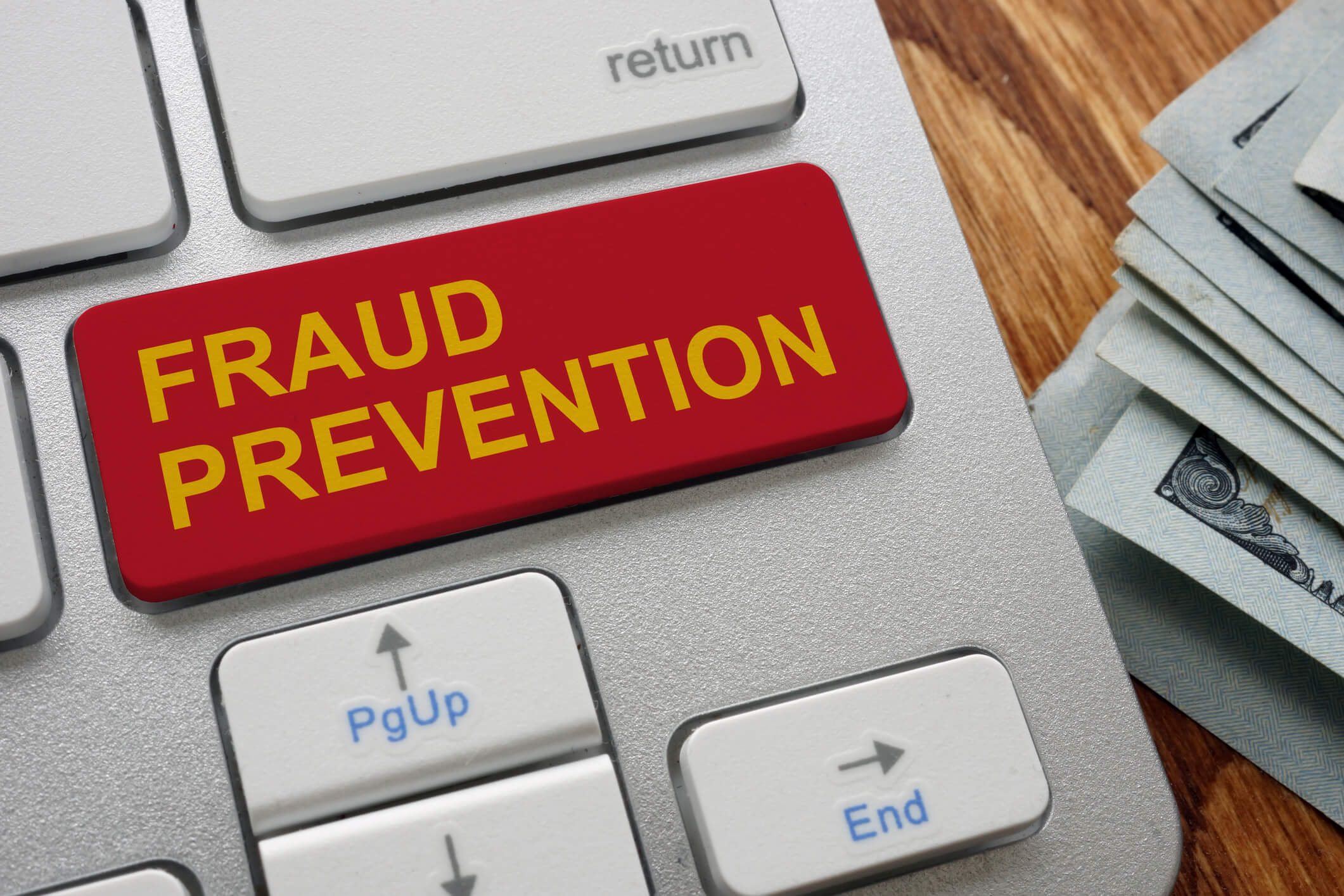
By Cindy Gardea September 3, 2024
Credit repair is a process that many individuals undertake to improve their credit scores and financial standing. However, this industry is not immune to fraudulent practices, which can have severe consequences for consumers. Fraudulent credit repair companies often prey on vulnerable individuals who are desperate to improve their credit and may not have the knowledge or resources to protect themselves.
In this article, we will explore the importance of preventing fraud in credit repair transactions and provide valuable insights on how to safeguard yourself from falling victim to fraudulent practices.
Recognizing Common Types of Fraud in Credit Repair
To effectively prevent fraud in credit repair transactions, it is crucial to be aware of the common types of fraudulent practices that exist in this industry. One common type of fraud is the promise of a quick fix. Fraudulent credit repair companies often claim that they can magically erase negative information from your credit report, regardless of its accuracy. This is a red flag, as no legitimate credit repair company can guarantee specific outcomes or remove accurate information from your credit report.
Another type of fraud to watch out for is the practice of charging upfront fees. Legitimate credit repair companies are prohibited by law from charging upfront fees before they have provided any services. If a company insists on payment before they have even started working on your credit repair, it is a clear indication of fraudulent activity.
Choosing a Reputable Credit Repair Company: Key Factors to Consider
When selecting a credit repair company, it is essential to consider several key factors to ensure you are working with a reputable and trustworthy organization. Firstly, research the company’s reputation and track record. Look for reviews and testimonials from previous clients to gauge their level of customer satisfaction. Additionally, check if the company is accredited by reputable organizations such as the Better Business Bureau (BBB) or the National Association of Credit Services Organizations (NACSO).
Transparency is another crucial factor to consider. A reputable credit repair company should be transparent about their services, fees, and the expected timeline for results. They should provide you with a written contract that clearly outlines the terms and conditions of their services. If a company is hesitant to provide this information or avoids answering your questions, it is a warning sign of potential fraudulent practices.
Conducting Background Checks: Verifying the Legitimacy of Credit Repair Services
Before engaging with a credit repair company, it is essential to conduct thorough background checks to verify their legitimacy. Start by checking if the company is registered with the appropriate regulatory bodies. In the United States, credit repair companies must comply with the Credit Repair Organizations Act (CROA) and register with the Federal Trade Commission (FTC). You can verify a company’s registration status by visiting the FTC’s website or contacting your state’s Attorney General’s office.
Additionally, research the company’s history of complaints and legal actions. This information can be found on the BBB’s website or by conducting a simple online search. If a company has a history of unresolved complaints or legal issues, it is best to steer clear and find a more reputable alternative.
Safeguarding Personal Information: Best Practices for Protecting Your Data
When engaging in credit repair transactions, it is crucial to safeguard your personal information to prevent identity theft and other fraudulent activities. Here are some best practices to follow:
- Be cautious with sharing personal information: Only provide your personal information to reputable and trusted credit repair companies. Avoid sharing sensitive information, such as your Social Security number, over unsecured channels or with unknown individuals.
- Use secure communication channels: When communicating with credit repair companies, ensure that you are using secure channels such as encrypted email or secure messaging platforms. Avoid sharing personal information over public Wi-Fi networks or unsecured websites.
- Regularly monitor your credit reports: Keep a close eye on your credit reports by obtaining free copies from each of the three major credit bureaus (Equifax, Experian, and TransUnion) annually. Review the reports for any suspicious activity or inaccuracies and report them immediately.
- Strengthen your passwords: Use strong, unique passwords for your online accounts and consider using a password manager to securely store and manage your passwords. Avoid using easily guessable information such as your birthdate or the word “password.”
Understanding Your Rights: The Role of Consumer Protection Laws in Credit Repair
Consumer protection laws play a vital role in regulating the credit repair industry and safeguarding consumers from fraudulent practices. The Credit Repair Organizations Act (CROA) is a federal law in the United States that sets forth specific requirements for credit repair companies. Under this law, credit repair companies must provide consumers with a written contract that outlines the services to be performed, the timeframe for results, and the total cost of the services. They are also prohibited from charging upfront fees before they have provided any services.
In addition to federal laws, many states have their own regulations governing credit repair companies. It is important to familiarize yourself with the specific laws in your state to ensure that you are protected and that the credit repair company you choose is in compliance with these regulations.
Red Flags to Watch Out for: Warning Signs of Potential Fraudulent Credit Repair Practices
To protect yourself from fraudulent credit repair practices, it is crucial to be aware of the red flags that indicate potential fraudulent activity. Here are some warning signs to watch out for:
- Guaranteed results: Legitimate credit repair companies cannot guarantee specific outcomes or promise to remove accurate information from your credit report. If a company makes such claims, it is likely a fraudulent practice.
- Upfront fees: As mentioned earlier, legitimate credit repair companies are prohibited from charging upfront fees before they have provided any services. If a company insists on payment before they have started working on your credit repair, it is a clear indication of potential fraud.
- Lack of transparency: Reputable credit repair companies should be transparent about their services, fees, and the expected timeline for results. If a company avoids answering your questions or is hesitant to provide written contracts and disclosures, it is a warning sign of potential fraudulent practices.
- Pressure tactics: Fraudulent credit repair companies often use high-pressure sales tactics to convince individuals to sign up for their services. They may create a sense of urgency or make false claims to manipulate consumers into making hasty decisions. Be cautious of companies that employ such tactics.
Reporting Fraudulent Credit Repair Companies: Taking Action to Protect Yourself and Others
If you believe you have fallen victim to a fraudulent credit repair company or have encountered suspicious practices, it is crucial to take action to protect yourself and others. Here are the steps you can take:
- Gather evidence: Collect all relevant documents, emails, and communications with the credit repair company. This evidence will be crucial when reporting the fraudulent activity.
- Report to regulatory authorities: File a complaint with the appropriate regulatory authorities, such as the Federal Trade Commission (FTC) or your state’s Attorney General’s office. Provide them with all the evidence you have gathered and a detailed account of the fraudulent practices.
- Notify credit bureaus: Inform the three major credit bureaus (Equifax, Experian, and TransUnion) about the fraudulent activity and request that they place a fraud alert on your credit report. This will help protect your credit from further damage.
- Warn others: Share your experience with others to raise awareness and prevent them from falling victim to the same fraudulent practices. Consider leaving reviews or testimonials on relevant platforms to warn others about the company’s fraudulent activities.
Frequently Asked Questions (FAQs) about Fraud Prevention in Credit Repair
Q.1: Can credit repair companies guarantee specific results?
No, legitimate credit repair companies cannot guarantee specific outcomes or promise to remove accurate information from your credit report. Be cautious of companies that make such claims.
Q.2: Are credit repair companies allowed to charge upfront fees?
No, legitimate credit repair companies are prohibited by law from charging upfront fees before they have provided any services. If a company insists on payment before they have started working on your credit repair, it is a warning sign of potential fraud.
Q.3: How can I verify the legitimacy of a credit repair company?
Conduct thorough background checks by researching the company’s reputation, checking for accreditation with reputable organizations, and verifying their registration status with regulatory bodies such as the Federal Trade Commission (FTC).
Q.4: What should I do if I suspect fraudulent practices by a credit repair company?
Gather evidence, file a complaint with the appropriate regulatory authorities, notify credit bureaus, and warn others about the fraudulent activities.
Conclusion
Preventing fraud in credit repair transactions is of utmost importance to protect consumers from falling victim to fraudulent practices. By recognizing common types of fraud, choosing reputable credit repair companies, conducting background checks, safeguarding personal information, understanding consumer protection laws, and being aware of red flags, individuals can significantly reduce their risk of becoming victims of credit repair fraud.
It is essential to stay vigilant, report fraudulent activities, and share knowledge to protect oneself and others in the pursuit of improving credit and financial well-being.



